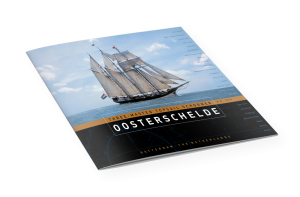16 mrt The seabed below
The seabed below
16 maart 2014
Update by Maarten:
“Sailing across empty seas as we have been doing for more than three weeks now, we can see our progression by little crosses on the chart as we regularly fix our position. Our Admiralty charts contain a wealth of information. What strikes one first and foremost is how big the sea is and how deep. Most of the time we are sailing over beautifully named Abyssal Plains, four to five kilometers below.
I do not have the exact numbers at hand, but I recall that the average height of the land we live on is a couple of hundred meters. The average depth of the sea however, which covers 70 percent of our planet, is more than three kilometers. A lot of water.
Looking at the charts of the Atlantic Ocean one sees the mid-Atlantic Ridge which is only one to two kilometers deep. The Americas on one side and Europe and Africa on the other are drifting slowly apart, away from this ridge. On both sides of the ridge are the Abyssal Plains, but also the chart is full of so-called seamounts, some named, others anonymous. These seamounts speak to the imagination, these almost islands that fall short and remain submerged, sometimes by hundreds of meters, sometimes only by tens of meters so that they show up blue rather than white on the chart.
One imagines what the Atlantic Ocean would look like without the water and one sees a Mordor like landscape with huge lunar like plains, dotted by pinnacles rising thousands of meters above it. This landscape could of course not exist without the sea pressure holding it up nor would one want to think away the essence and source of all life on our planet, but one could maybe wish that some more of these seamounts would have ‘made’ it to islands. How much more fun would the Atlantic Ocean be as a cruising ground if it were dotted with islands, like parts of the Pacific Ocean.
Just north of Ascension Island (which we are now fast approaching; we will arrive tomorrow morning), there is the Romanche Gap, an underwater canyon unique for the Atlantic Ocean with a depth of almost eight kilometers. Guarding over it on the eastern side is the Pillsbury Seamount, a solitary tower that rises to just 800 meters below the surface. Imagine that.”





